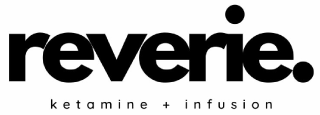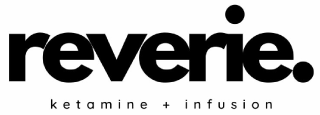Post Partum Depression
Ketamine Treatment for Postpartum Depression
Postpartum Depression (PPD):
Postpartum depression is a severe mood disorder that can affect women after childbirth. It’s characterized by intense feelings of sadness, anxiety, and fatigue that interfere with a woman's ability to care for herself and her baby. PPD can also involve changes in sleep patterns, appetite, and difficulty bonding with the newborn. The condition can arise due to a combination of hormonal changes, emotional stress, and genetic factors, making it a complex challenge to treat.
Traditional Treatments:
Conventional treatments for PPD include psychotherapy and antidepressant medications like selective serotonin reuptake inhibitors (SSRIs). However, these treatments often take several weeks to become effective and may not provide the immediate relief needed for women in acute distress. Additionally, there are concerns about the potential side effects of antidepressants on breastfeeding infants.
Ketamine's Role in Treating PPD:
Ketamine, originally developed as an anesthetic, has gained attention in recent years for its rapid antidepressant effects. It’s particularly effective in cases of treatment-resistant depression and has shown promise in addressing PPD. The appeal of ketamine lies in its ability to alleviate depressive symptoms much faster than traditional antidepressants.
Mechanism of Action:
Glutamate System Modulation:
Ketamine acts on the brain's glutamate system, which is different from the monoamine systems (serotonin, norepinephrine, dopamine) targeted by traditional antidepressants. Specifically, it antagonizes NMDA (N-methyl-D-aspartate) receptors, leading to a surge in glutamate in the brain. This increase in glutamate enhances synaptic plasticity—the brain’s ability to adapt and reorganize itself by forming new neural connections.
Neuroplasticity:
By boosting synaptic plasticity, ketamine helps to repair and rejuvenate neural circuits that are impaired during depression. This can restore healthy brain function and mood regulation more quickly than the gradual changes promoted by conventional antidepressants.
Immediate and Sustained Effects:
One of the most compelling aspects of ketamine treatment is its rapid onset of action. Many patients report significant relief from depressive symptoms within hours of receiving a ketamine infusion. This swift effect is crucial for new mothers who are experiencing severe PPD and need prompt intervention. Beyond its immediate impact, ketamine may also induce longer-term changes in brain connectivity and function, which can help sustain improvements in mood and mental health.
Administration and Safety:
Ketamine for depression is typically administered in a controlled clinical setting, through intravenous infusions (IV). The treatment usually involves a series of sessions over a few weeks. While ketamine is generally safe when administered under medical supervision, it can cause side effects like dissociation, increased blood pressure, and nausea. These effects are usually short-lived and manageable with pre-medication.
Impact on Postpartum Depression:
For women suffering from PPD, ketamine can be a lifeline. Its rapid antidepressant action provides almost immediate relief, allowing new mothers to regain a sense of normalcy and connect better with their babies. This is particularly important for maternal-infant bonding and the overall well-being of the family. Additionally, ketamine’s unique mechanism of action offers hope for those who have not responded to other treatments.
Future Prospects:
Research into ketamine’s effects on postpartum depression is ongoing, and while initial results are promising, more extensive studies are needed to fully understand its long-term efficacy. Nonetheless, ketamine represents a significant advancement in the treatment of depression, offering new hope for women struggling with the profound impacts of PPD.
Conditions We Treat
Ketamine infusions are used to treat Depression, Anxiety, Postpartum Depression, PTSD, C-PTSD, Obsessive Compulsive Disorder, and Chronic Pain. First responders ALWAYS get 20% off.
Why We are Different
We are critical care providers and nurses with over 20 years combined experience with Ketamine administration. We ensure your experience is intentional and comfortable from start to finish.
Pricing
Treatments start at $449. All treatments are in private treatment rooms and include pre-treatment medications for anxiety, headache and nausea, Ketamine via IV infusion, and a post-treatment hydration drip.
"Ketamine feels like a reset button. I can zoom out from the emotions of my problems and see what I need to change to get out of my own way."
--South Jordan, Utah

